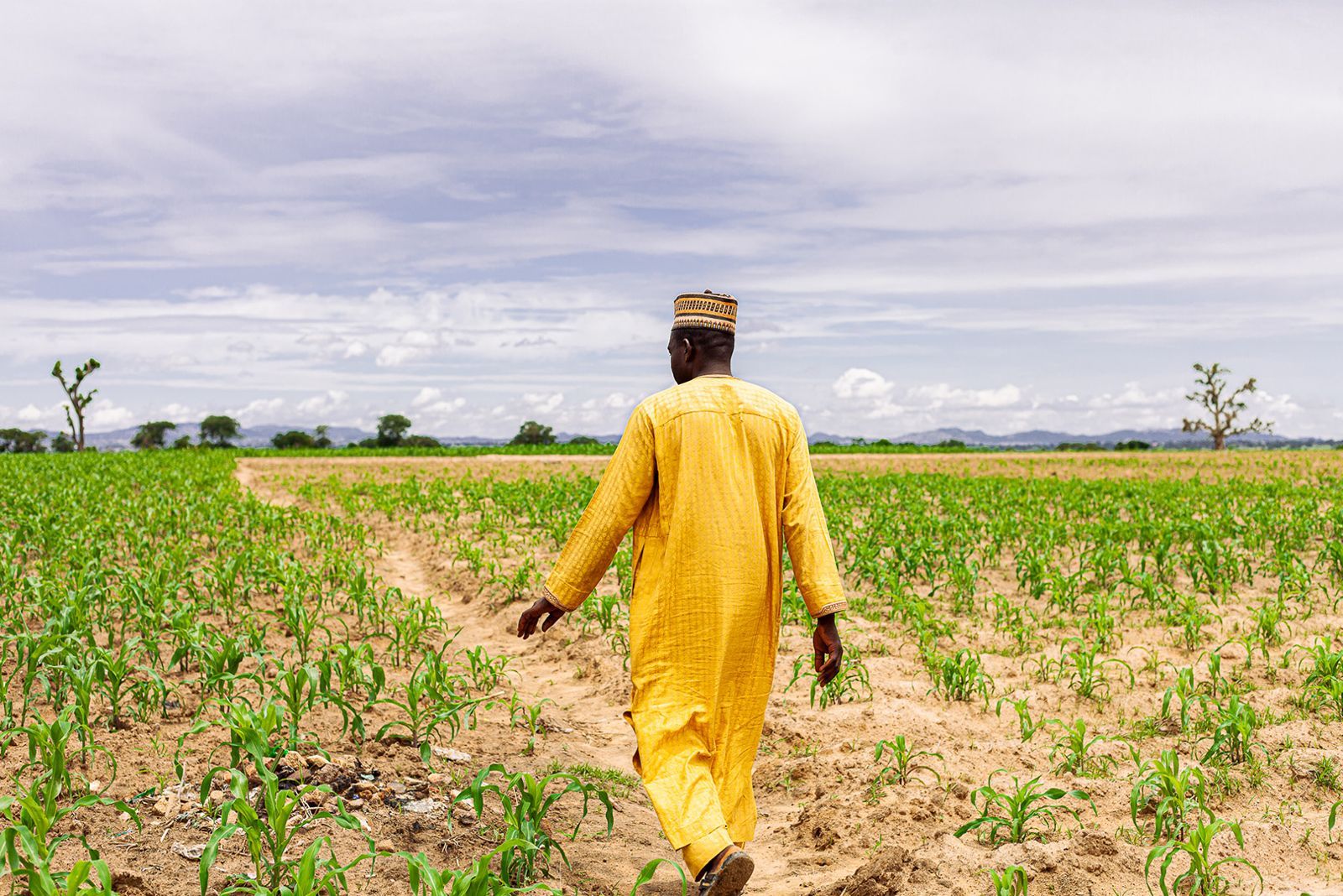Reading time:4 min read
Why Nigeria Needs to Invest in Agriculture Financing
Demand for food far outstrips food production in Nigeria. The country’s current population of about 223 million people is projected to increase to 263 million by 2030, yet its agricultural productivity stagnates, and food needs remain unmet. To meet its populace demand, Nigeria needs to invest in agriculture financing to boost agriculture yield and achieve at least 70% domestic food self-sufficiency.
Historically, financing agriculture, either in cash or kind, had ranged from family and individual savings and gifts, private money lenders, daily contributions, cooperative thrift associations/cooperative societies produce buyers, to state agricultural credit corporations and agencies, agricultural development agencies, etc. However, agricultural financing has faced numerous constraints due to several volatilities plaguing the sector. Access to credit is limited due to a lack of collateral among farmers, high interest rates, and the limited reach of financial institutions in rural areas. Market and infrastructure constraints, including poor infrastructure, price volatility, and limited market access, further exacerbate the challenges. Additionally, the perception of high risk in agricultural lending, coupled with farmers' limited financial literacy, creates significant obstacles for the sector.
Today, Hunger and poverty remain the biggest challenges in the country because Nigeria’s agricultural businesses and farmers are significantly undercapitalized. Small and medium-sized agribusinesses in Nigeria, which often integrate farming and processing, face significant hurdles in accessing both short-term and long-term financing. As Nigeria's largest economic driver and primary employer, the lack of finance for agriculture hinders the sector’s growth, ultimately limiting opportunities for smallholder farmers to improve their livelihoods and food security in the country
Who Needs Financing in the Agriculture Sector?

Finance drives the commercialization of innovations. in the Nigerian agricultural sector, finance is the catalyst for mechanization and to achieve productivity in agriculture these groups require ample financing.
-
Farmers and small agricultural entrepreneurs- Rural farmers and small supply companies need finance to expand production. It is required for inputs like seeds and fertilizers, production machinery and equipment, processing, packaging, and transport according to the FAO.
-
Rural infrastructure: The agricultural sector in Nigeria depends heavily on infrastructure such as rural transport systems, irrigation systems, water supply, sanitation, electricity, storage, and telecommunication facilities that require large amounts of financing.
-
Actors along the value chain- The sector entails a sequence of interlinked activities—transactions—in a chain that starts from the supply of seeds and fertilizers and finishes in the mouth of the consumers. There are financial instruments specifically designed to strengthen these links between the actors along the value chain.
-
Research and Development (R&D): This focuses on financially supporting knowledge generation for the sector. This includes the generation of agricultural technology and new technical knowledge about products, processes, and services for the sector.
Why We Think Agriculture Financing Will Reshape Food Security in Nigeria

Evidence from countries that have prioritized agricultural financing underscores its critical role in achieving food security. For instance, China's substantial investment in agricultural research—increasing from 600,000 yuan to 10.5 million yuan between 1961 and 2007—correlated with a remarkable 350% surge in grain production. This demonstrates the powerful link between agricultural financing and productivity.
Beyond private investment, government support is essential. Dedicated agricultural financial institutions, such as the Agricultural Bank of Ghana, Argentina's Law 6973, India's Rural Infrastructure Development Fund (RIDF), and Brazil's Pagamento Antecipado de Exportacao, have significantly contributed to their respective countries' agricultural sectors. These state-owned banks, often overseen by agriculture or finance ministries, provide crucial financial resources to farmers and agribusinesses.
The New Wave of Agriculture Financing in Nigeria - Value-Chain Finance
The new non-traditional means of financing agriculture are mostly developed within the interlinked relationships between suppliers, buyers, producers, and credit facilities. The focus of this financing is on the business transaction between two or more participants of the chain, rather than direct financing of the farmer or entrepreneur.
Currently, technology-enabled commodity exchanges aimed at providing solutions to farmers’ challenges in aggregation, storage, and financial inclusion as well as providing a ready market for both farmers and buyers to participate are in vogue. Organizations like AFEX have improved the productivity of farmers by providing proper access to farm inputs and markets. Doing this through its input disbursement programs, smart warehousing systems, and the Exchange. Thereby reducing costs and risk, increasing efficiency, and improving the credit profile of the actors in the chain.
To attain food security, agricultural financing should be boosted. However, given the sector's inherent peculiarities in securing competitive funding, direct government intervention is imperative to reach its capacity.
